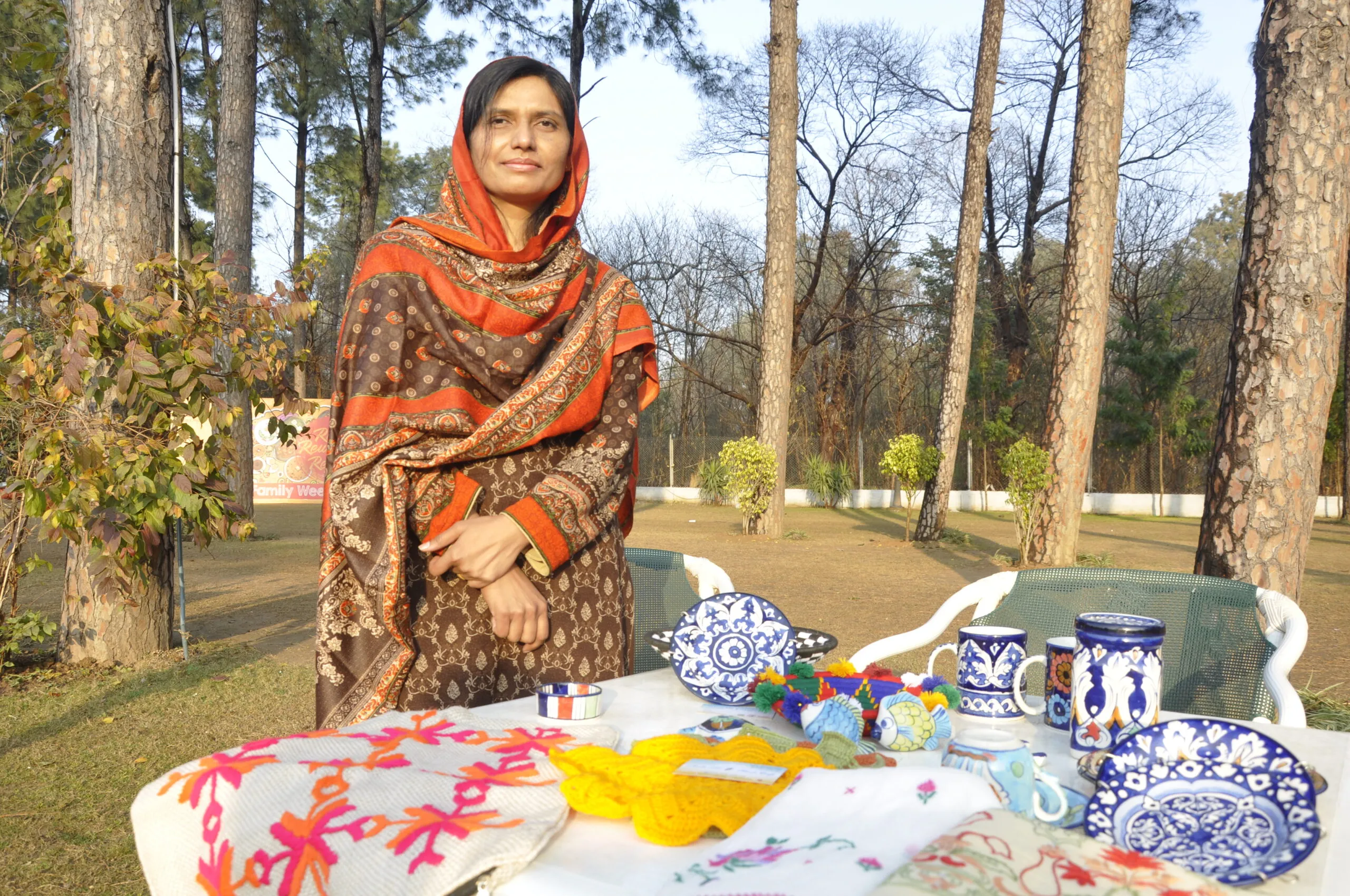Fariha Irfan has been running her own arts and handicrafts business for almost three years. The 40-year-old, from Rawalpindi in Pakistan, lives with her husband and four sons. She not only brings income into her own family, but has a network of artisans who she supports with her business.
Fariha specializes in Punjab pottery and handicrafts, including embroidery cloth and printed clothing for women. She currently works closely with four women who embroider, and three men who supply the pottery. As well as being a buyer and seller of these specialist items, Fariha also works closely with the artisans on design ideas.
Being a woman and starting a business in Pakistan is not without its challenges: “Starting a business is especially difficult for women. We live in a male-dominated society and at every step we need men to assist us, whether that’s our husbands or our brothers,” explains Fariha. To reinforce the point, she explains that her husband gave her the capital to start her business. She adds: “I could not take a loan as I could not fulfil the requirements. I also do not know the procedure for applying and sometimes I am not even aware of the opportunity to apply for financial assistance.”
Despite the challenges, Fariha is a strong advocate for women-owned businesses, adding: “Through business, women can become more independent and confident and they can support their families. Once you take that first step, new pathways will open up.” She has also sought out support from a fellow entrepreneur, Fouzia, who is further along her entrepreneurial journey.
Fariha admits that having the confidence to take the leap into business was a challenge for her, but she has felt her confidence grow significantly since starting out. She adds: “I feel more confident and my fear of getting out of the house and meeting other people is a barrier I have crossed.” When the business started, Fariha would mostly sell goods from home, but as her confidence grew, she started regularly attending exhibitions to sell the products.
Unfortunately, this was not to last as COVID-19 rapidly put an end to all the exhibitions and face-to-face sales opportunities. Fariha needed to quickly adapt. Recognizing the need to switch her business online, Fariha asked her husband to help her set up a Facebook page to sell her handicrafts. “I had to take the big step of growing my business by going online. When we did this we got new clients and new growth. My business got a new face and I was able to reach customers beyond my local area and even as far as the US, Bahrain and Dubai,” she proudly explains.

